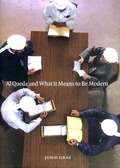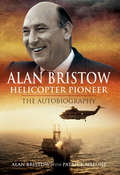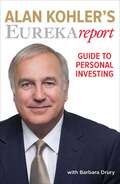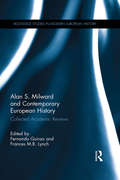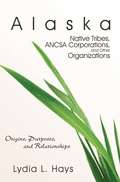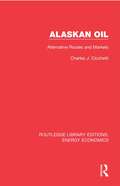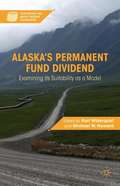- Table View
- List View
Al Dunlap at Sunbeam
by Rakesh Khurana Brian J. Hall Carleen MadiganAl Dunlap was one of the best-known corporate turnaround artists of the 1990s. In 1996, he was hired at Sunbeam to effect a restructuring, but was fired almost two years later when the company's financial performance and stock price began to decline. Many of the controversies that had surrounded him at his previous job, Scott Paper, followed him to Sunbeam: his rejection of the multiple stakeholder view of corporate governance, his aggressive managerial style, his shaky relations with the media, and his high level of pay. The case describes Dunlap's compensation package at Sunbeam and addresses the issue of how U.S. companies compensate "superstar" CEO's.
Al Islami Foods: Partnering for Growth
by Michael Norris Lynda M. ApplegateIn 2018, Al Islami Foods CEO Marwan Al Garem and Chairman Saleh Saeed Lootah have to decide on a potential investment partner. They hope to find the best match for a strategic investment in their Dubai-based halal foods company from a list of three global food companies.
Al Qaeda and What It Means to Be Modern
by John GrayIn this compact analysis, Gray (European thought, London School of Economics) demonstrates that, contrary to popular opinion, the ideology of Al Qaeda is both Western and modern. Touching on the philosophical roots of Al Qaeda, the brief history of the global free market, the collapse of states, and the rise of unconventional warfare, he revises the conventional wisdom of the post-September 11th era. He confronts the Western faith in global development, technology, and democracy, revealing dangerous flaws in America's drive to create a global economy and worldwide democracy. Annotation ©2004 Book News, Inc., Portland, OR (booknews.com)
Al borde de un ataque de compras
by Brenda ChávezEste libro ofrece 73 pautas ingeniosas, sencillas y sin embargo eficaces que simplifican nuestra labor como consumidores y consumidoras sin sermonear ni culpabilizar, y nos allanan el camino hacia un modo de vida más responsable. Consumir de manera consciente, es decir, teniendo en cuenta las implicaciones sociales y medioambientales, parece una meta cada vez más difícil de alcanzar. Pero al igual que el voto, toda opción ligada al consumo es a fin de cuentas una decisión política con la que día a día perfilamos nuestra realidad, pues implica intereses de todo tipo que, sin saberlo, podemos estar apoyando en contra de nuestros propios valores. Apelando al sentido común que habita en todos nosotros y eludiendo cualquier tipo de fanatismo, Brenda Chávez entreteje de manera hábil y amena una serie de datos sorprendentes, ejemplos reveladores y consejos prácticos al alcance de cualquier persona.El primer paso para desprogramar unas lógicas de mercado que tenemos totalmente interiorizadas y que ejercen en nosotros una influencia poderosa sin que apenas nos demos cuenta.
Alacra, Inc.
by Aldo Sesia Lynda M. ApplegateIn 2009, the CEO of Alacra, a venture-backed information services firm that provides customized data primarily to financial services firms, must decide how to respond to the global economic crisis.
Alan Bristow, Helicopter Pioneer: The Autobiography
by Patrick Malone Alan Bristow&“You could be forgiven for taking Bristow&’s story as the invention of an action thriller writer . . . One of the best flying books you&’ll ever read.&” —Pilot Magazine Alan Bristow was a truly remarkable man. As a merchant navy officer cadet during the war, he survived two sinkings, played a part in the evacuation of Rangoon and was credited with shooting down two Stukas in North Africa. He joined the Fleet Air Arm and trained as one of the first British helicopter pilots, becoming the first man to land a helicopter on a battleship and Westland&’s first helicopter test pilot. He flew in France, Holland, Algeria, Senegal and elsewhere, narrowly escaping many helicopter crashes before winning the Croix de Guerre evacuating wounded French soldiers in Indochina. For four years he flew for Aristotle Onassis&’s pirate whaling fleet in Antarctica before joining Douglas Bader and providing support services to oil drillers in the Persian Gulf. Out of that grew Bristow Helicopters Ltd, the largest helicopter company in the world outside America. Bristow&’s circle included the great helicopter pioneers such as Igor Sikorsky and Stan Hiller, test pilots like Harold Penrose and Bill Waterton, Sheiks and Shahs and political leaders, business giants like Lord Cayzer and Freddie Laker, and the author James Clavell, a lifelong friend whose book Whirlwind was a fictionalized account of Bristow&’s overnight evacuation of his people and helicopters from revolutionary Iran. Bristow and precipitated the Westland Affair when he made a takeover bid which eventually led to the resignation of Michael Heseltine and Leon Brittain, and almost to the downfall of Margaret Thatcher.&“Has all the ingredients of a bestselling novel.&” —Firetrench
Alan Kendricks at Cardiology Associates
by Boris Groysberg Colleen Kaftan Wilfred S. Mccalla Jr.Alan Kendricks struggles to address many challenges facing him as a recently promoted medical director for Cardiology Associates at Southeastern Pennsylvania University Hospital. He must balance his time taking care of patients, running a practice, managing up, down, and laterally, managing stars with little formal authority, allocating resources fairly, developing his people, providing strategy and direction, building an organization, and spending time with his family. Offers insights into the dilemmas of a "producing manager," a person who is simultaneously responsible for producing and managing.
Alan Kohler's Eureka Report Guide To Personal Investing
by Barbara Drury Alan KohlerAlan Kohler's Eureka Report Guide to Personal Investing provides the tools you need to understand all aspects of your personal finances. Written in plain language for the self-directed investor, it will help you seize control of the money accumulating in your superannuation, your home and, most importantly, in your investment accounts. Designed to be read either from cover-to-cover or dipped into as a key reference tool, this is a comprehensive guide to the basic building blocks of wealth creation. Tap into the resources of Australia's No. 1 Investment Report to learn the fundamentals of: goal setting, borrowing to invest, investment structures, the property market, tax planning, superannuation. Using this knowledge, along with your deeper understanding of risk, return and the major asset classes, will help you uncover the key principles for lifetime mastery of your personal finances. Alan Kohler's online investment website Eureka Report has become the leading personal investment publication in Australia. Alan Kohler's Eureka Report Guide to Personal Investing brings the very best principles and lessons we have learnt along the way into one easily accessed reference.
Alan S. Milward and Contemporary European History: Collected Academic Reviews (Routledge Studies in Modern European History)
by Frances M.B. Lynch Fernando GuiraoAlan S. Milward was a renowned historian of contemporary Europe. In addition to his books, as well as articles and chapters in edited books, he also wrote nearly 250 book reviews and review articles, some in French and German, which were published in journals world-wide. Taken together they reveal a remarkable degree of theoretical consistency in his approach to understanding the history of Europe since the French Revolution. This book brings together these previously unexamined pieces of historical analysis in order to trace and shed light on key intellectual debates taking place in the second half of the 20th century. Many of these discussions continue to influence us today, such as the role of Germany in Europe, the economic, social and political foundations of European integration, the European rescue of the nation-state, the reasons for launching the single currency, the conditions for retaining the allegiance of European citizens to the notions of nation and supra-nation, and ultimately the issue of democratic governance in a global environment. In bringing together these reviews and review articles, the book provides an introduction to the main scholarly achievements of Milward, in his own words. Fernando Guirao and Frances M.B. Lynch provide an introduction to the volume, which both guides the reader through many of the academic debates embedded within the text while underlining their contemporary relevance. By introducing and bringing together this hitherto overlooked treasure trove of historical analysis, this book maps a close itinerary of some of the most salient intellectual debates of the second half of the 20th century and beyond. This unique volume will be of great interest to scholars of economic history, European history and historiography.
Alaska Airlines: Empowering Frontline Workers to Make It Right
by Ranjay Gulati Andrew O'Connell Caroline De LacvivierCase
Alaska Airlines: For the Same Price, You Just Get More...
by Roger Hallowell Tonicia HamptonAlaska Airlines grapples with the issue of whether or not advanced use of technology to enable its customers to serve themselves (self-service) in certain airport functions will help it to achieve competitive advantage.
Alaska Native Tribes,ANCSA Corporations, and Other Organizations: Origins, Purposes, and Relationships
by Lydia HaysLearn about Alaska's unique indigenous people who have lived thousands of years in a subsistence economy and unconquered. See how today's Alaska Native people exhibit remarkable resilience and adaptability despite the arrival of foreigners to Alaska in the mid-1700s, who sought natural resources and brought death and disease that claimed many indigenous lives. Clear descriptions, facts, charts, lists, and maps tell about the 230 Alaska Native tribes and more than 350 Alaska Native-owned for profit and nonprofit organizations that have emerged over the past 65 years. A stunning 25,000 year timeline depicts archeological sites which helped provide the basis for aboriginal land rights in the historic Alaska Native Land Claims Settlement in 1971. Today, Alaska Native people comprise about 20 percent of Alaska's population and their institutions are a major player in Alaska's diverse economy. Easy to read, you will gain an essential understanding about these modern institutions that have been successfully integrated with traditional subsistence values and are improving the lives of Alaska Native people and all of Alaska.
Alaskan Oil: Alternative Routes and Markets (Routledge Library Editions: Energy Economics)
by Charles J. CicchettiOriginally published in 1972, this volume, supplemented extensively with maps and tables, and employing sophisticated institutional and empirical analyses, discusses a number of important issues relating to the viability of the Trans-Alaska Pipeline and the natural environment. The author concludes that exploiting North Slope oil was justifiable as a calculated risk, although an alternative route and transport mode to the Midwest of eastern market would be more attractive than TAP.
Alaska’s Permanent Fund Dividend
by Karl Widerquist Michael W. HowardContributors discuss the Alaska Permanent Fund (APF) and Permanent Fund Dividend (PFD) as a model both for resource policy and for social policy. This book explores whether other states, nations, or regions would benefit from an Alaskan-style dividend. The book also looks at possible ways that the model might be altered and improved.
Albania: Ex Post Assessment of Longer-Term Program Engagement
by International Monetary FundFinancial report from the IMF
Albania: From Isolation Toward Reform
by Mario I. Blejer Mauro Mecagni Ratna Sahay Richard Hides R. Barry Johnston Piroska Nagy Roy PepperFinancial report from the IMF
Albania: Report on the Observance of Standards and Codes--Data Module, Response by the Authorities, and Detailed Assessments Using the Data Quality Assessment Framework
by Michael Deppler Robert W. EdwardsFinancial report from the IMF
Albania: Second Review Under the Three-Year Arrangement Under the Poverty Reduction and Growth Facility--Staff Report; Staff Statement; Press Release on the Executive Board Discussion; and Statement by the Executive Director for Albania
by International Monetary FundFinancial report from the IMF
Albania: Selected Issues and Statistical Appendix
by International Monetary FundIn recent years, the IMF has released a growing number of reports and other documents covering economic and financial developments and trends in member countries. Each report, prepared by a staff team after discussions with government officials, is published at the option of the member country.
Albania: Selected Issues and Statistical Appendix
by International Monetary FundA report from the International Monetary Fund.
Albert "Jack" Stanley in Nigeria (A)
by Lena G. Goldberg Chad M. CarrThe international joint venture that successfully bid for $6 billion in contracts to build LNG trains on Nigeria's Bonny Island became entangled in a widening bribery and corruption probe triggered by an unrelated accusation against an employee of one of the JV partners. The (A) case discusses the JV's ""business as usual"" approach to doing business in the context of Nigeria's political culture and the involvement Albert ""Jack"" Stanley, the JV's alleged manager, in structuring and implementing an elaborate bribery scheme. The ""B"" case relates Stanley's actions after he became the subject of multiple investigations and was terminated by Halliburton, parent of the U.S. JV partner, for taking kickbacks. The ""C"" case details the resolution of bribery and corruption allegations against Stanley, several of his associates and the JV partners.

